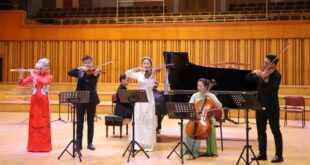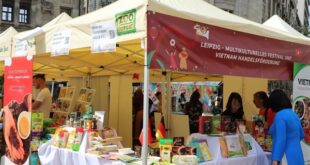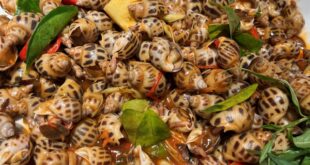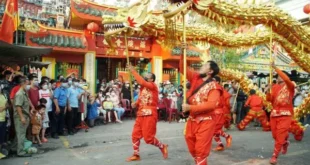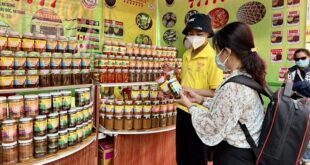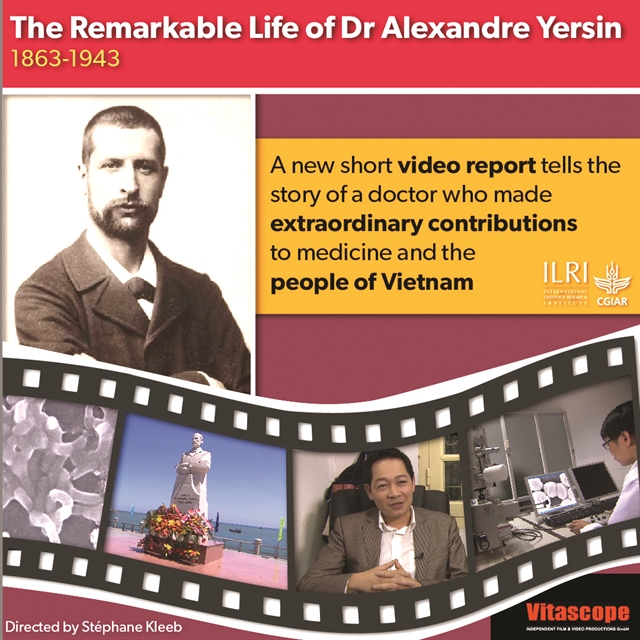
HÀ NỘI — A special documentary on the outstanding life of Dr Alexandre Yersin and his career in Việt Nam has debuted in Hà Nội.
The Remarkable Life of Dr Alexandre Yersin (1863-1943) hopes to inspire young people, especially those working in health care research and development. The documentary is a result of collaboration between the International Livestock Research Institute (ILRI), embassies, research institutes and universities in Việt Nam.
The film highlights a “One Health” approach to address zoonotic diseases, in the context of emerging diseases, especially the current COVID-19 pandemic.
Alexandre Yersin was a Swiss-French polymath and physician who spent almost all of his life working in Việt Nam, during the first half of the 20th century. He made invaluable contributions as a bacteriologist, serial entrepreneur and public health administrator, but is most respected and beloved by Vietnamese people for his works as a highly professional but very modest doctor.
The documentary was directed by Stéphane Kleeb and produced by Vitascope Independent Film & Video Productions GmbH. The producers hope that it will highlight Dr Yersin’s extraordinary life and accomplishments in Việt Nam, while also discussing lessons learned from his interdisciplinary work serving local communities.
Dr Nguyễn Việt Hùng – the protagonist in the film – is also the co-leader of a programme on animal and human health at ILRI, and previously worked for the Swiss Tropical and Public Health Institute (Swiss TPH) and the Hà Nội University of Public Health.
Dr Hùng said the film released coincides with the 79th anniversary of Yersin’s death and reflects on his life as a bright exemplary that can be used as an inspiration for young people.
“Yersin is best remembered among the medical community for his discovery of the bacillus responsible for the bubonic plague, which was later named Yersinia pestis to honour him,” he said.
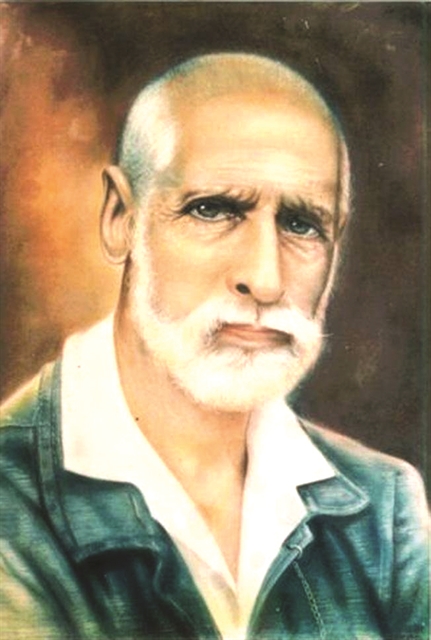
The great doctor discovered the bacillus causing bubonic plague in Hong Kong in 1894, a discovery that ironically came about in part because he did not have access to the latest scientific equipment, such as incubators, which inadvertently heated the cold-loving bacillus beyond its viability.
He also established that the same bacillus (Yersinia pestis) that infected people could at the same time infect rodents. This helped identify the long-suspected means of transmission for the disease.
Yersin helped establish Indochina’s first medical school in 1902, serving as its director for the first two years. The Hà Nội Medical University is now the largest medical school in Việt Nam, but back then there were hardly enough teachers to cover the curriculum.
“Yersin himself taught zoology, physics, a bit of everything, to cover the gaps,” said Hùng, adding most of our knowledge on his life comes from the letters the doctor wrote every week to his mother in Switzerland.
“He was often associated with colonialists, due to the era that he lived here,” said Hùng, addressing head-on the primary concern about Yersin’s legacy.
“But when you look at all the documents about him and how he loved local people, particularly children and helped them when they were sick, and so on, you will see that is not the image of a coloniser.”
“For young researchers like me, one of Dr Yersin’s most inspiring qualities is his ability to work across disciplines that today we call it as a ‘transdisciplinary approach’,” Hùng said,
“He worked on what we later call ‘Một Sức khỏe’ (One Health), he worked on zoonoses, he mobilised people to work in various disciplines, and he mobilised resources. All of the things that we are doing today, he was doing a century ago.”
Dr Yersin’s other achievements include plague anti-serum manufacturing companies he established in India and Việt Nam and the opening of an agricultural station that successfully acclimatised quinine for local consumption and rubber for export.
He even suggested where to build a new town that became very popular among the expatriate French for its high altitude and European-like climate – Đà Lạt City.
Viewers can watch the film through links with fixed subtitles in English and Vietnamese at https://youtu.be/mxoRTvO2c1o and with a choice of French/English/Vietnamese subtitles at https://youtu.be/c88-mCVfna4. VnExpress News
- Reduce Hair Loss with PURA D’OR Gold Label Shampoo
- Castor Oil Has Made a “Huge” Difference With Hair and Brow Growth
- Excessive hair loss in men: Signs of illness that cannot be subjective
- Dịch Vụ SEO Website ở Los Angeles, CA: đưa trang web doanh nghiệp bạn lên top Google
- Nails Salon Sierra Madre
 VnExpress News The News Gateway of Vietnam
VnExpress News The News Gateway of Vietnam
